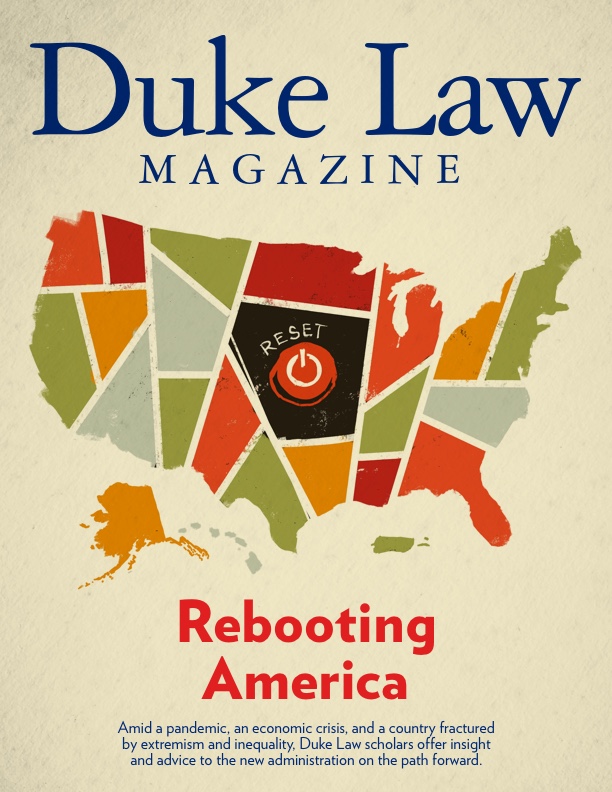
Consumer protection | Sara Sternberg Greene
Provide essential relief for tenants and landlords — and declare the nation a pandemic disaster zone

For me, eviction and mortgage relief are among the most critical issues. For most people, their biggest monthly expense is either their mortgage or their rental payment. And in the context of COVID, one of the most critical things to combat the pandemic’s spread is for people to have a roof over their head, because it’s spreading in homeless shelters and it’s spreading when people are teaming up in houses in order to avoid homelessness.
When various state mortgage forbearance and eviction moratoriums end, there is likely going to be a huge surge in evictions and even potentially a foreclosure crisis.
I think there are two ways to approach this. One is to say that individual households need more relief. There are people who weren’t working for months, and they got behind on rent. Even if they’re working now, they don’t magically have three months of rent. So while the moratoriums were good in that they delayed evictions, more, I think, needs to be done than just extending those because people just won’t have the cash [to pay rent arrears]. Eventually the landlords will be able to file for eviction — and there are two sides of this issue.
Congress has to include provisions within a stimulus package that would directly compensate landlords and, possibly, mortgage lenders to cover people’s rent payments and mortgage payments, under certain confines of the renters’ income levels.
I think that Congress has to include provisions within a stimulus package that would directly compensate landlords and, possibly, mortgage lenders to cover people’s rent payments and mortgage payments, under certain confines of the renters’ income levels. That would be more tailored to households’ individual circumstances.
There are a lot of mom-and-pop landlords who depend on rent to make ends meet. And while the eviction moratoriums help a lot of renters, at least in the short term, some landlords are struggling to pay their mortgages because they are not receiving rent. So I think we really need relief in this area right away. It has to be more than just saying, “We’ll put off evictions for another few months.” We have a crisis coming.
Another issue, involves the Earned Income Tax Credit — the EITC. There are a lot of families who rely on the EITC in order to make ends meet. Aside from Social Security, it’s the largest anti-poverty program in the country. Families rely on it to pay off debt and to pay bills like rent. It’s designed to encourage work. An underlying assumption is that there’s enough work to go around.
But in 2020, of course, a lot of people who qualified for the earned income tax credit were not working as much as they ordinarily would have. So when they start filing their 2020 taxes come February, all of a sudden their EITC will be significantly less than they were anticipating and significantly less than they traditionally received, which for a lot of lower-income taxpayers will be devastating.
As [Pamela B. Gann Professor of Law] Larry Zelenak and I wrote in an essay that was published in The Hill last July, a fairly easy fix to this can be found in a section of the Taxpayer Certainty and Disaster Tax Relief Act of 2019, which was kind of a national disaster act. Section 204(c) basically says that within [presidentially declared] disaster areas, when the disaster occurred in 2018 or 2019, people can elect to calculate their EITC based on their earned income from the previous year, rather than the disaster year — they had the option to calculate EITC based on 2018 income, rather than 2019. And if it was better for someone to calculate it based on] 2019 income, they could.
President Biden needs to declare the country a pandemic disaster area. And then everyone can just elect into calculating EITC based on their 2019 income. The pieces of the plan are already there and, in fact, Congress has indicated interest in allowing this EITC calculation.
This is the way to go with the EITC — at a minimum — because otherwise a lot of people will find that the largest federal antipoverty program has failed them. They were told not to go to work, they weren’t allowed to go to work, and their places of work were closed. While this is not as immediate an issue as eviction, I think it will be a real problem when it comes. And the EITC is fairly bipartisan because it encourages work. I think this is an easy, quick, and important fix.

